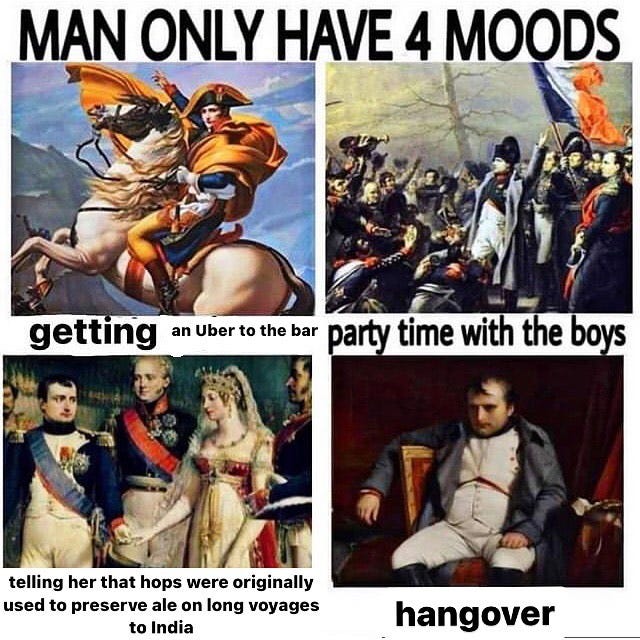Why dive bars need ThirdPlacesTok
How a viral video resurfaced the case for community spaces to a whole new audience
Previous TikTok coverage from this boozeletter may have given you the impression that it is an unserious thunderdome whose relevance to the business and culture of American booze begins with hard seltzer taste-tests and ends with scantily clad #beerposters. That’s probably my fault. In truth, TikTok is rapidly usurping Twitter as the internet’s de facto public square, and that online reality that has innumerable implications for drinking behavior and commerce IRL. Yes, TikTok has stunt-cocktail compilations and Brita filter “hacks” and and hokey #speakeasy “discoveries” aplenty. That’ll probably always be a part of the app, because the only thing more mesmerizing than watching a dude with a mullet tornado-chug a longneck, is watching it on loop forever. But as a digital public square, the platform is also a powerful vector for meatier discourse that can and does life in the physical public square. Like, for example, the sociopolitical and commercial forces that have gutted American civic life and driven dive bars, neighborhood joints, public beer gardens, et al. to the brink of extinction in the process.
This week, social media strategist and walkable city enthusiast Nathan Allebach went fairly viral with the video above about the disappearance of America’s “third places”—a concept that sociologist and The Great Good Place author Ray Oldenburg came up with to describe locations other than the home or the workplace where community can gather, interact, and enjoy themselves. Oldenburg’s book came out in 1989; Allebach’s video is one of the most successful examples I’ve seen of packaging its ideas for viewers that, statistically speaking, probably weren’t alive in 1989. [Correction: an earlier version of this article misstated The Great Good Place’s original year of publication. It was first published in 1989, and reprinted in 1999. Thanks to Friend of Fingers Stan H. for the heads-up!] It’s part of what I’ll call ThirdPlacesTok: an emerging corner of the platform where users educate and enthuse about third places, urban density, street life, affordable housing, transit, and other overlapping schools of progressive civic thought that are common across the developed world (albeit still pretty niche United States.) At writing, Allebach’s explainer has racked up over four million views across both TikTok and Twitter, where writer Elad Nehorai embedded the video in a tweet that has clocked a massive 30,000+ retweets and counting.
This is really encouraging for a bunch of reasons, and I’ll hopefully have an interview soon with Allebach expanding on these ideas in more depth. But in the meantime, I want to elaborate a bit about why this conversation is so important—and why I think bars are so important to it. As Allebach notes, bars are one of the most common types of third places in this country. While they may not be the Oldenburgian ideal of a third place, given that even the most pleasant watering holes are ultimately still businesses predicated around for-profit sale and consumption of a controlled substance, I think they’re absolutely integral to mending the fraying American social fabric because there really aren’t that many other types of third places left in this country due decades of privatization of public commons. As Brandon Hinke, the guy behind @PicturesofDives, told The Fingers Podcast in a 2021 interview: “Maybe we wouldn't love [dive bars] as much if there were more community centers or more public spaces… but every aspect of our lives has just been absolutely atomized, and we're all kind of stuck in our own places.” If we’ve got any shot of rebuilding a society that centers civic interaction to stave off the crushing epidemic of loneliness, understanding and celebrating how bars and other remaining third places foster real-life community is a great place to start.
We’d better start soon. The pandemic’s devastating effects on the United States’ small-time, common-man drinking establishments has been well-documented, but the truth is that these businesses were already struggling long before Covid-19 touched down on American shores. All the forces that are changing U.S. cities—shortages of housing, luxury overdevelopment, underfunded public infrastructure, and so on—bear down especially hard on cozy, well-worn bars that sell cheap drinks on low margins and not much else. (This is even more true for those bars operated by, for, and in marginalized communities.) Paradoxically, the bars that function best as third places are often least equipped—and least inclined—to adapt. Their timelessness, their refusal to upsell or sell out, is why people feel so welcome spending time in them feel so welcoming as hangouts, and most vulnerable to changing tastes, generational turnover, and the vagaries of speculative real estate markets.
What if neighborhood joints didn’t have to make more money to cover rent or give up the lease to a Jamba Juice? What if their value to the community as third places was enough? These are questions that we’re not well-equipped as to answer, or even ask, as Americans raised under the market-humping amorality of neoliberalism. That’s why I’m so glad to see them being asked by people like Allebach on ThirdPlacesTok.
Sure: TikTok, like Twitter before it, is not a 1:1 proxy for real life. Face-to-phone virality is no substitute for face-to-face organizing. But the chasm between online and offline is closing by the day, and the fact that a TikTok video breaking down the idea of third places has found so much traction with the general public shows how much that idea can capture the popular imagination. Remaking the American civic landscape to preserve the third places we have and build new ones (ideally where commerce is a secondary focus, or not a focus at all) will be impossible without a massive, small-d democratic groundswell of demand. Viral videos from ThirdPlacesTok can’t save dive bars, obviously. But the people that watch them can, if they understand the forces they’re fighting against, and the importance of what they’re fighting for.
📬 Good post alert
See a good post that the Fingers Fam should know about? Please send me that good post via email or Twitter DM.
💰Anybody got a good Bang-ruptcy lawyer?
Bang Energy’s South Florida headquarters is normally a carnival of flexible influencers in fluorescent spandex, but you’ve gotta figure things are a little more subdued after Thursday’s legal developments, which saw Jack Owoc’s brand on the losing end of two crucial deliberations that put it on the hook for nearly half a billion dollars worth of legal damages. Yes, that’s “billion” with a “b”—and there may be more to come.
First, a federal judge denied an appeal from Vital Pharmaceuticals (Bang’s parent company, also known as VPX Sports) to vacate the $175 million trademark-infringement judgement that an arbitrator had awarded juice producer Orange Bang in April 2022. Later that same day, a federal jury reached a brutal-for-Bang verdict in one of the swashbuckling beverage firm’s other major ongoing lawsuits, finding that Owoc & co. had falsely advertised its “super creatine” ingredient and awarding rival Monster Energy Corporation a potentially record-breaking $293 million in damages. According to Law360’s Craig Clough—who, to his immense credit, has been all over the Bang legal beat lately—the finding “tee[s] up possible enhanced and punitive damages” too.
Put another way: in the past 24 hours, the judicial system nudged Bang and Owoc (to the extent that they’re even different entities lol) a whole lot closer to a $468 million legal cliff. Also in the past 24 hours: Bang’s prolific poster-in-chief hasn’t followed up last week’s Instagram attack’s on Pepsi’s executives. Huh! I’ve only as legally literate as the next layperson, and I haven’t a clue what VPX’s books look like. But the penalties stemming from all the high-dollar litigation Bang keeps losing (not to mention the attorneys fees, etc.) are starting to seem maybe-existential for the energy drink firm. We here at Fingers HQ hope this doesn’t put Owoc on the road to Bang-ruptcy. But should that dark day come, we’re prepared to enter a competitive bid—I’m talking several tens of dollars here—to facilitate the FingersBang merger that the American drinking public neither asked for, nor wants.
Last thought, and just speculation here, but your fearless Fingers editor is starting to wonder if maybe that rumor that Keurig Dr. Pepper was in talks to acquire Bang was actually real until the former got some visibility into the latter’s then-outstanding legal situation decided to get the hell out. Hmm.
⏳ Reminder: secure your limited-edition zine + stickers!
Fingers’ first-ever zine, The Boozeletter Turns Two…sletter, is available for preorder now! The zine features custom art by Friend of Fingers Brandon Underwood, who also did the design on the custom 2nd-birthday sticker. The pack is $25 including free shipping in the U.S., and includes a zine and two stickers. Every sale helps to underwrite my independent journalism about drinking in America, so please:
(Editor’s note: Fingers Founding Members, as thanks for your generous, above-and-beyond financial contributions to this project, you’ll get this pack for free. Keep an eye out for a separate email from me with more details on how to claim yours.)
🧾 The Settle-Up
N/A Craft Beer = Allbirds, Change My Mind (my latest Hop Take column for VinePair)
Coors Banquet x ‘Yellowstone,’ A Match Made in Big West/Small-Gov Heaven
Over Industry Opposition, CA Wine, Spirits Bottles Now Carry 10¢ Deposit
Diageo Buys Rest of Trendy Coffee Liqueur Mr. Black, Surprising No One
NJ Craft Brewers, Still Getting Hosed by Arcane ABC Rule, Sue State
Boutique Booze Destination Has Housing Crunch? You Don’t Say
VA’s Insider Bourbon Trading Case Gets Looks from Both WaPo and Money Stuff
📲 The best Fingers meme ever and/or lately
Don’t miss out, follow Fingers on Instagram today. It’s free and your feed will thank you. (Not really, that would be weird. But you know what I mean.)











